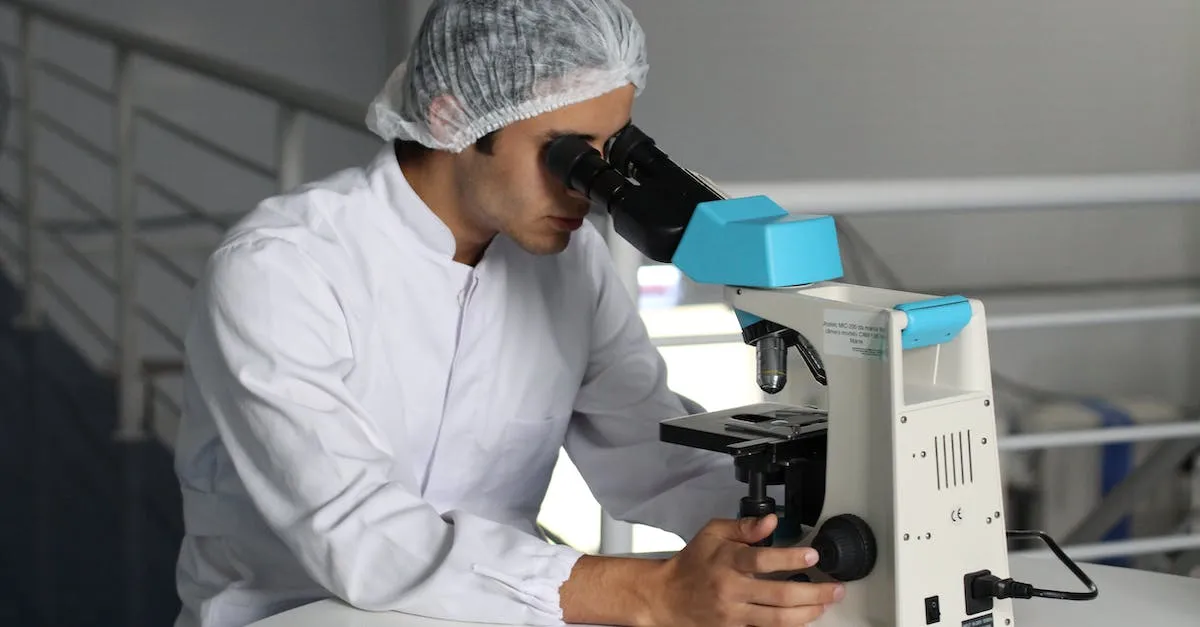Doctor Of Medical Science Vs Md: What’S The Difference?
If you’ve considered pursuing a career in medicine, you may be wondering about the differences between a Doctor of Medical Science (DMS) and an MD. Both degrees equip graduates to practice medicine, but they take slightly different paths to get there.
In this comprehensive guide, we’ll compare and contrast these two medical degrees so you can decide which program may be the best fit for your goals and interests.
If you’re short on time, here’s a quick answer to your question: The main differences between a DMS and an MD lie in the focus of the coursework, certification requirements, and career options. DMS programs emphasize research whereas MDs focus more on hands-on clinical work.
DMS degrees usually take a bit longer to complete as well. Both degrees prepare graduates to diagnose and treat patients.
What is a Doctor of Medical Science Degree?
A Doctor of Medical Science (DMS) degree is an advanced professional degree that focuses on expanding knowledge and expertise in a specific area of medicine. It is designed for healthcare professionals who already hold a Doctor of Medicine (MD) or another doctoral-level degree in a medical field.
The DMS degree program offers additional coursework and research opportunities to further enhance clinical skills, leadership abilities, and knowledge in a specialized area of medicine.
Overview and Coursework
The DMS degree program typically consists of advanced coursework, research, and hands-on clinical experiences. Students may choose to specialize in areas such as cardiology, dermatology, oncology, or neurology, among others.
The coursework for a DMS degree program often includes advanced medical sciences, research methodology, healthcare leadership, and specialized clinical rotations. These programs aim to provide students with a deeper understanding of their chosen medical specialty and equip them with the skills necessary to excel in their field.
Doctoral-level research is a significant component of the DMS degree program. Students are required to complete a research project or dissertation that contributes to the existing body of medical knowledge.
This research may involve conducting clinical trials, analyzing patient data, or developing innovative medical treatments. The research component allows students to develop critical thinking and analytical skills while making meaningful contributions to the medical field.
Certification Process
After completing the DMS degree program, healthcare professionals may choose to pursue certification in their specific area of specialization. Certification requirements vary depending on the medical specialty, but typically involve passing a comprehensive examination and fulfilling specific experience and education criteria.
Certification demonstrates a high level of expertise and can enhance career prospects and professional credibility.
Career Paths
Individuals with a Doctor of Medical Science degree have a wide range of career paths available to them. Some may choose to continue working in clinical practice, providing specialized care to patients in their chosen medical specialty.
Others may pursue careers in research or academia, conducting medical research, teaching future healthcare professionals, or working in leadership roles within healthcare organizations. The DMS degree can also open doors to administrative positions, healthcare consulting, or healthcare policy development.
What is a Doctor of Medicine or MD Degree?
A Doctor of Medicine (MD) degree is a professional degree for medical doctors. It is the most common degree awarded to physicians in the United States and many other countries. The MD degree is obtained through a medical school program that typically takes four years to complete.
Overview and Coursework
During their medical school education, students pursuing an MD degree receive comprehensive training in various medical disciplines. The coursework typically includes subjects such as anatomy, physiology, biochemistry, pharmacology, pathology, and clinical skills.
Students also gain hands-on experience through clinical rotations in different specialties, such as internal medicine, surgery, pediatrics, and obstetrics.
Medical school programs focus on providing students with a strong foundation in medical knowledge, clinical skills, and critical thinking. This prepares them to diagnose and treat patients, as well as to understand the underlying mechanisms of diseases and the latest advancements in medical research.
Certification Process
After completing their medical school education, MD graduates must go through a certification process before they can practice medicine independently. This process involves completing a residency program in their chosen specialty, which typically lasts three to seven years, depending on the specialty.
During the residency, doctors receive further training and gain practical experience in their specific area of expertise.
Once the residency is completed, doctors are eligible to become board-certified in their specialty by passing a rigorous examination administered by the relevant medical board. Board certification is not mandatory, but it is highly recommended as it demonstrates a doctor’s expertise and commitment to maintaining high standards of medical practice.
Career Paths
With an MD degree, doctors have a wide range of career paths available to them. Many choose to work as primary care physicians, providing general medical care to patients of all ages. Others specialize in a specific area, such as surgery, cardiology, dermatology, or psychiatry.
Some doctors also pursue careers in medical research, academia, healthcare administration, or public health.
Key Differences Between DMS and MD Degrees
Focus of Curriculum and Training
The Doctor of Medical Science (DMS) and MD degrees differ in terms of their focus. While both degrees prepare individuals for careers in the medical field, the DMS degree is typically designed for healthcare professionals who already hold a master’s degree in a related field.
The DMS program focuses on advanced clinical skills, research, leadership, and teaching. On the other hand, the MD degree is a traditional medical degree that focuses on the core medical curriculum, including basic sciences, clinical rotations, and hands-on training.
According to the American Medical Association (AMA), the MD degree focuses on training individuals to diagnose and treat illnesses, perform medical procedures, and provide patient care. The curriculum includes courses in anatomy, physiology, pharmacology, pathology, and more.
Students also gain practical experience through clinical rotations in various medical specialties.
It’s important to note that the specific curriculum and training requirements may vary between different DMS and MD programs, so it’s essential for individuals to research and compare the details of each program they are considering.
Program Length
The length of the DMS and MD programs also varies. Typically, the DMS program is shorter than the MD program. While the MD program generally takes around four years to complete, the DMS program may range from one to three years, depending on the individual’s prior education and experience.
This shorter duration of the DMS program is due to the fact that it is intended for healthcare professionals who already possess a master’s degree in a related field.
It’s important to note that the program length can vary between different universities or institutions offering these degrees. It’s advisable to check the specific program requirements and duration before making a decision.
Certification Requirements
When it comes to certification requirements, there are differences between the DMS and MD degrees. In order to practice medicine, MD graduates are required to pass the United States Medical Licensing Examination (USMLE) and obtain a license in the state in which they intend to practice.
Additionally, MD graduates may choose to pursue specialized certifications in specific medical specialties.
For DMS graduates, the certification requirements may vary depending on the specific field they choose to specialize in. In some cases, DMS graduates may be required to obtain additional certifications or licenses specific to their area of expertise.
It’s important for individuals considering a DMS program to research the specific certification requirements for their desired career path.
Career Options
The career options for individuals with a DMS degree and those with an MD degree can differ. MD graduates are typically recognized as medical doctors and have a wide range of career opportunities available to them.
They can choose to specialize in various medical specialties such as cardiology, dermatology, pediatrics, or surgery.
On the other hand, individuals with a DMS degree can pursue careers in healthcare leadership, research, higher education, and clinical practice. The DMS degree allows healthcare professionals to advance their skills and knowledge beyond their previous master’s degree, opening doors to more specialized roles within the medical field.
It’s important to note that career options can vary based on factors such as experience, additional certifications, and individual preferences. It’s advisable for individuals to explore and research the specific career paths associated with each degree to make an informed decision.
Conclusion
In summary, while both DMS and MD graduates are equipped to practice medicine after completing their training, the two degrees have slightly different focuses when it comes to curriculum, certification, and career trajectories.
A DMS degree places more emphasis on research and academic pursuits, while the MD is more focused on hands-on clinical work with patients. By weighing the pros and cons of each path, you can determine which medical degree aligns best with your interests and professional goals.







